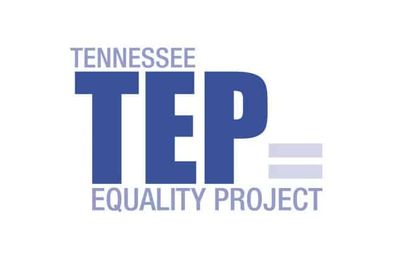The Tennessee Equality Project, a statewide organization working for the equality of gay, lesbian, bisexual, and transgender people in Tennessee, has released its local government advocacy agenda for the next four years to coincide with this year’s municipal elections in Knoxville, Memphis, Nashville, and other cities.
According to TEP executive director Chris Sanders: “Our previous policy agenda was heavily focused on non-discrimination ordinances and partner benefits for local government employees. Other critical needs facing our community need to be addressed over the next four years and local governments in Tennessee can play a vital role in improving the lives of LGBT people. We invite elected officials, candidates, our community, and allies to work together in bringing about legal and lived equality across Tennessee.”
The eight-point plan includes the following items:
I. Domestic Partner Registries. If the United States Supreme Court does not rule in favor of marriage equality forTennessee, it will be many years before the State Constitution extends equal marriage to same-sex couples. Until that time, Tennessee cities and counties must do what they can to protect same-sex couples. The City of Atlanta, for example, maintains a domestic partnership registry for all residents of the city and city employees.
II. Safe schools. Only Knox County, Metro Nashville, Putnam County, and Shelby County school districts include sexual orientation and gender identity in their non-discrimination/anti-bullying policies. We continue to advocate the inclusion of gender identity, gender expression, sexual orientation, disability, and other factors in school district policies across the state. In addition, we will look for opportunities to help school districts incorporate LGBT competency training for administration and faculty and make them aware of the federal Equal Access Act to create a space for Gay/LGBT-Straight Alliance clubs in schools.
III. Gender transition/gender confirmation healthcare for city or county government employees. Employee insurance programs in local governments should include these needs.
IV. Building relationships with local law enforcement and district attorneys across the state to address hate crimes and domestic violence. The persistence of hate crimes, a national outbreak of violence against transgender women, and alarmingly high rates of domestic violence in the LGBT community call for closer relationships between advocacyorganizations, local law enforcement agencies, and district attorneys.
V. Funding for youth transitional housing. LGBT young adults (18-24) have few options when they become homeless. Many private solutions may not be fully inclusive and may even be hostile to LGBT people. Local governments can expand their own funding and they can do more to make sure their housing authorities are applying for all available federal programs related to youth transitional housing.
VI. LGBT-friendly affordable housing for seniors. More cities like Chicago are looking at LGBT-friendly affordable housing options for seniors. The first generations of LGBT people who have lived most of their lives out of the closet are aging and in need of solutions. City and county governments can make sure existing HUD non-discrimination policies are fully understood and implemented by staff. Local governments can also help their housing authorities implement LGBT senior cultural competency training for staff.
VII. LGBT-competent staff at health facilities. Local governments across the state are involved in providing health services from hospitals to health departments and clinics to emergency medical services. LGBT people, like all people, deserve excellence and respect when they seek services. Local governing bodies and boards that oversee city and county health services should require personnel to improve their competency in serving the LGBT community in order to improve health outcomes.
VIII. Dignity/Inclusion/Non-Discrimination resolutions for smaller local governments. While it may not be possible to pass non-discrimination ordinances in smaller towns in Tennessee, local governing bodies should consider dignity/inclusion/non-discrimination resolutions like the ones passed by many towns in Mississippi. The goal of these resolutions is to inhibit discrimination and increase the safety of LGBT people in smaller towns. It will also have the effect of showing more state officials that equality is a value cherished throughout Tennessee.
For a fuller discussion of each of these goals, go to http://tnep.nationbuilder.com/tep_release_local_government_advocacy_agenda_for_next_four_years
